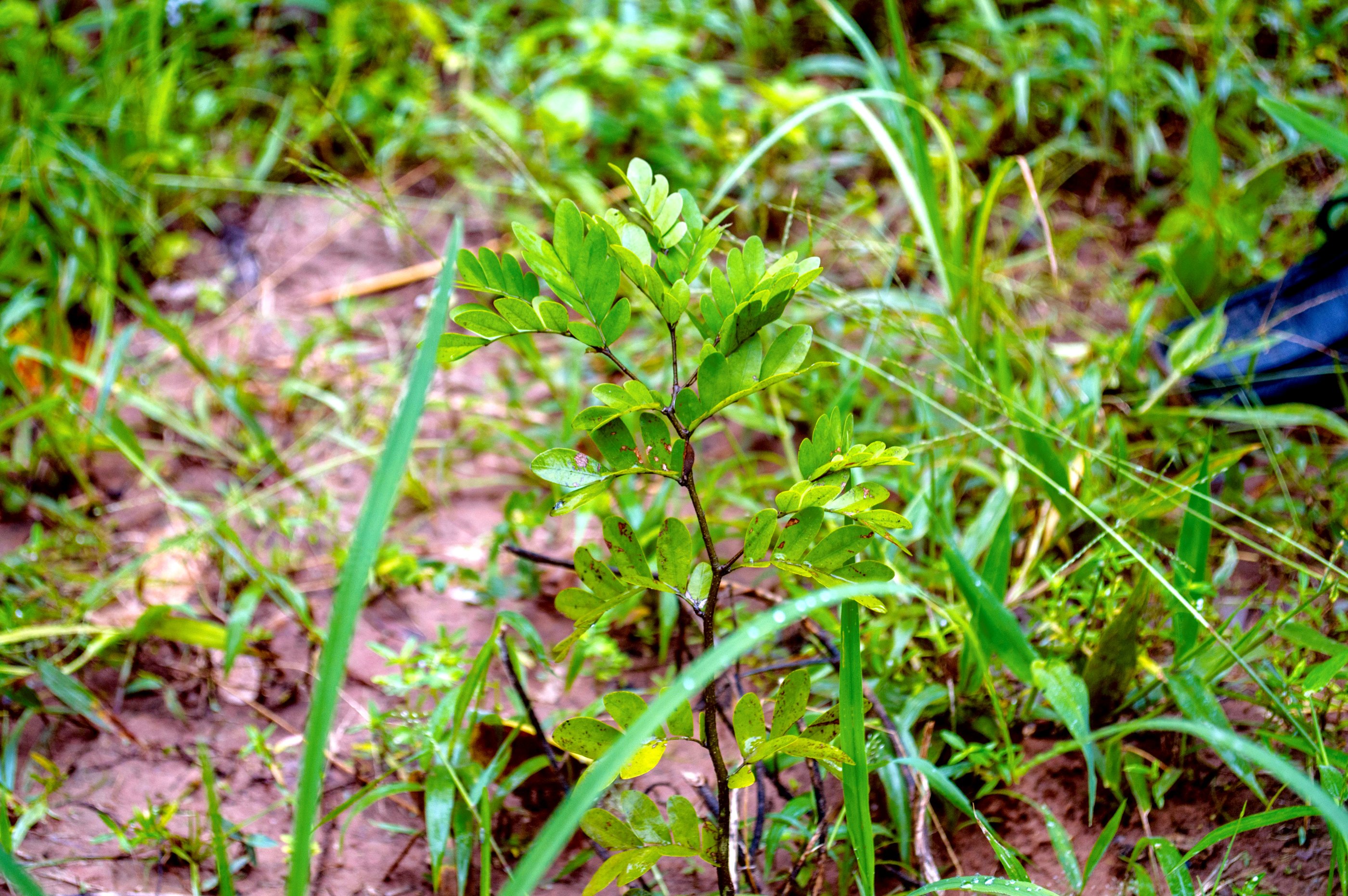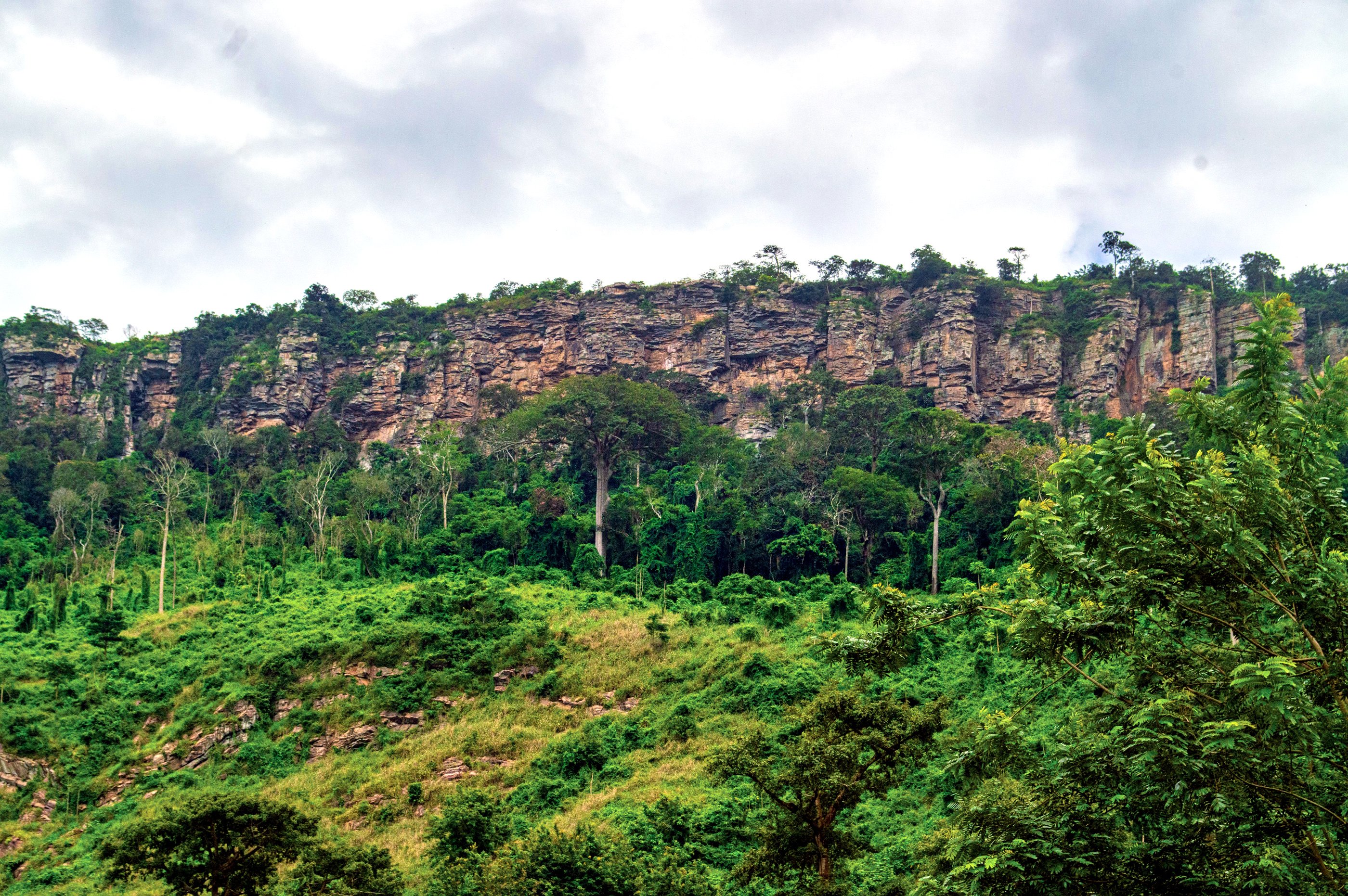Turning the tide for a critically endangered tree in Ghana
Since 2015, BirdLife Partner and conservation group, the Ghana Wildlife Society (GWS), has been supporting HeidelbergCement’s subsidiary Ghacem with their biodiversity management efforts. One of the partnership objectives has been to promote conservation of remaining patches of the Lower Guinea forest, which supports valuable forest biodiversity, including a critically endangered tree species that is found only in Ghana.
This species – Talbotiella gentii – is an evergreen tree found in small stands growing on rocky areas of typically dry forests. With populations being heavily impacted by the continuing decline and degradation of such forest habitats, 15 of the 28 known stands of T. gentii have become extinct as of 2020, mainly caused by deforestation for farming and charcoal burning. The lifecycle of this tree also impedes its conservation, as it is slow growing with poor seed dispersal.
Due to the critical status of T. gentii, GWS and the Forest Services Division of Ghana’s Forestry Commission are currently intensifying conservation efforts to reverse the decline. And these actions are being strongly supported by Ghacem.

HeidelbergCement
A programme to restore two sections of forest in the Yongwa and Sapawsu Forest Reserves began in 2018 with two main aims: to increase the population of T. gentii and to raise awareness among the communities about the importance of this tree. The former aim required a research phase to understand how to maximise germination of T. gentii seed, with trials set up at the Ghacem tree nursery. Initially, 2000 seedlings were successfully grown, which were then planted out at the Yongwa and Sapawsu Forest Reserves, covering an area of 3.95 Ha. Evidence gained from the experimental plots has provided useful and previously unknown information on the species, particularly in its early life stages. This data will be important for increasing germination success in subsequent propagations.
The survival of the tree in an agroforestry setting was identified by GWS and the Forestry Commission as being crucial to the long-term success of the restoration project. As such, further research has been done in the field to measure the success of intercropping T. gentii with different crops. The most successful relationship found thus far is between T. gentii and plantain, resulting in better nourishment and shade, and overall decreased mortality. Continually monitoring the survival and growth rates of the planted-out trees into the future will also be key for further increasing the scientific knowledge of how best to restore populations.
Solid communication has been necessary to ensure the long-term survival of the trees, and GWS has been working with the communities and farmers to stop the felling of T. gentii for charcoal and firewood. This is being supported by the provision of two enforcement officers by the Forestry Commission. Ghacem has lent additional support through a Quarry Life Award project focused on the socio-economic impact of T. gentii. The results of the field experiments are also being shared and will help individuals adopt the practice of intercropping the critically endangered tree with plantain to increase its survival rate.
The germination and planting project with Ghacem is now in its second phase, with an additional 2000 seedlings being raised in the tree nursery for subsequent use in restoration as the project continues. This is seen as a flagship project for HeidelbergCement. Dr. Carolyn Jewell, Biodiversity Senior Manager at HeidelbergCement, comments: “While we encounter and indeed support many protected and rare species in our quarries, it is not every day that we can support conservation efforts to save a critically endangered species, which makes this project in Ghana unique and incredibly exciting.”

Forest conservation in Ghana.
HeidelbergCement

T. gentii seedlings.
HeidelbergCement

Forest conservation in Ghana.
HeidelbergCement

T. gentii seedlings.
HeidelbergCement
